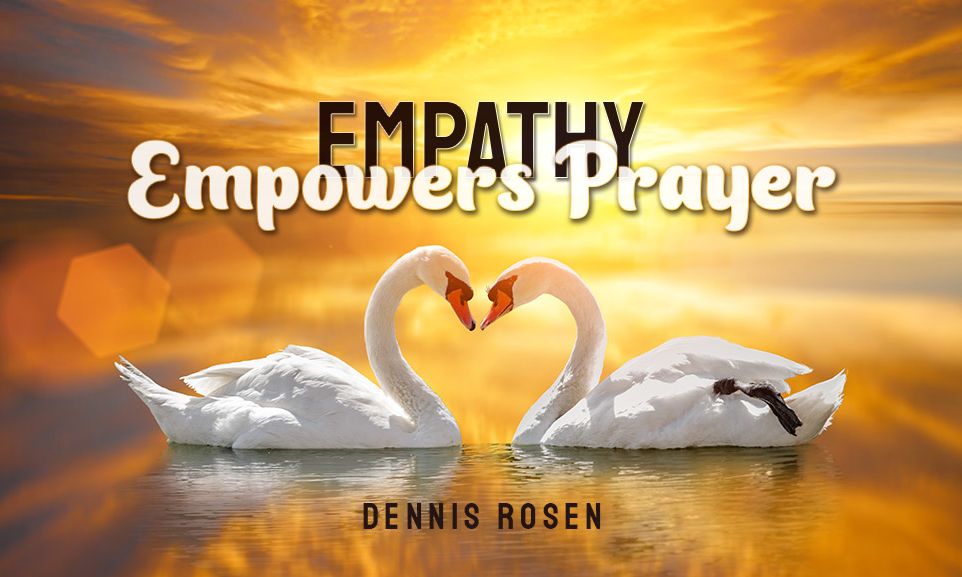
Empathy Empowers Prayer
The Jewish people are facing unprecedented difficulties. What can we, as individuals, do to improve the situation? An insight comes from the Priestly Blessing (Bircas Kohanim) and feeling mutual love for each other.

Rabbi Eliayhu Quedosim recently recounted a story involving Rabbi Ovadiah Yoseph.
A young man who had been married for seven years and was still without children came to him and requested that he pray on his behalf. The Rav closed his eyes for a prolonged period. After a while the young man thought that perhaps he had fallen asleep. He then he saw a tear coming from the rabbi’s eyes. He was astounded because he himself had never cried over his own plight. The rabbi then began to bless him profusely that he and his wife should have children. No doubt, the rabbi had heard of many situations like this, perhaps even that same day, yet he still was able to respond with enormous empathy and compassion.
The blessing was effective as this young man and his wife now have numerous children. The lesson is that we need to empathize with other people who are undergoing difficult situations. We need to close our eyes and think about how we would feel in the same situation and feel compassion. This will empower our prayers.
This reminds me of a story I read about the Chofetz Chaim. A young man was considering leaving yeshiva and he decided to go to see the Chofetz Chaim for advice. When he arrived at the house, he was told by one of the relatives to have a seat and wait.
He saw the Chofetz Chaim on the other side of the room extremely distraught. He was crying and reciting Tehillim with great fervor. His actions seemed incongruous with the behavior of the rest of the family who were casually going about their business. The young man asked one of the family members what was going on. He learned that a few minutes before he had arrived, a complete stranger had come to the Chofetz Chaim and informed him that one of his relatives was sick.
When the young man saw the great compassion displayed by the Chofetz Chaim for another person who was a total stranger, he was astounded. He realized that this level of concern for another human being could only be attained through the study of Torah, and he decided to continue his yeshiva studies.
I heard a talk by Rabbi Elisha Friedman in which he listed some of the major difficulties faced by Klal Yisrael and the entire world. What can we personally do to change the situation?
He provided an insight regarding the Priestly Blessing (Bircat Kohanim). Before they bless the congregation, the Kohanim recite a special prayer. They thank Hashem that they have been sanctified with the holiness of their ancestor Aaron and commanded to bless the Jewish people with love.
Aaron loved people, pursued peace, and brought people closer to Hashem. He was chosen to become the progenitor of the priestly class precisely because of his love for the Jewish people.
When a Kohen says this blessing, he reminds himself how important it is to love the people he’s going to bless. The source of each Kohen’s power is that he is filled with love. That’s what supercharges his blessing.
Most of us are not Kohanim but we should certainly channel love and respect for the Jewish people and all humanity into our prayers. This will vastly increase the effectiveness of our prayers and make us worthy of being a conduit for the Creator’s blessings.
In addition to feeling empathy and sharing the difficulties of other people, we should also share their joys. As the saying goes: “A sorrow shared is cut in half, and a joy shared is doubled.”
In The Garden of Knowledge, Rabbi Shalom Arush teaches that we should feel happy for others who succeed and who are experiencing spiritual or material abundance. The reason we should be happy is that Hashem experiences great joy when His children succeed. In other words, we should share in the happiness of our loving Father. We should do this even when, and especially when, others are experiencing success or abundance in areas where we are lacking. Since this is harder to do, this practice invokes tremendous Divine favor.
In his booklet, Loving the People of Israel with Total Devotion, Rabbi Arush quotes Rabbi Shimon Bar Yochai who taught that our main mission depends on our mutual love for one another. This mutual love becomes actualized in our heartfelt prayers for the well-being of others.
Let’s remember to put ourselves in other people’s places and contemplate what it would be like to undergo the tribulations they are experiencing. Let’s ensure that our prayers are animated by this empathy. May we work to love each other and pray for each other in a spirit of love. Finally, let’s feel happy for others when they succeed and share in their joys. This will establish an atmosphere of mutual love within the people of Israel and the world and result in many blessings and salvations.












Tell us what you think!
Thank you for your comment!
It will be published after approval by the Editor.